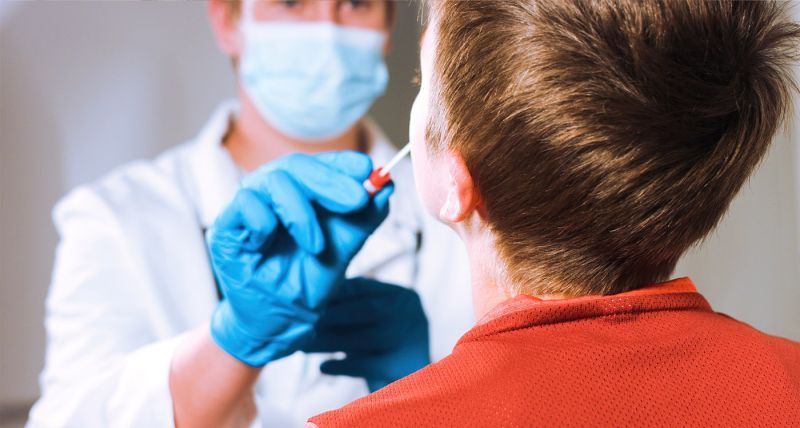
While some countries are experiencing a new surge in Covid-19 cases, the virus continues to mutate and spread. In Israel, health authorities recently reported a nearly 30% rise in cases over just a few weeks. In France, pharmacies are also noticing an increase in positive tests, particularly among holidaymakers.
In Lebanon, the situation remains unclear. With no systematic testing, no centralized data, and no organized prevention campaigns, tracking the virus’ true spread has become nearly impossible. Speaking to This is Beirut, Dr. Jacques Choucair, head of the infectious diseases department at Hôtel-Dieu de France in Beirut, warns of rising cases amid a total absence of structured testing and prevention.
An Old Virus, Now Permanent
Dr. Choucair recalls that SARS-CoV-2, which emerged in late 2019, is a mutation of a coronavirus that has existed since the 1950s, originally considered harmless.
A first significant mutation appeared in the early 2000s in China with SARS-CoV-1. In 2012, MERS-CoV emerged in Saudi Arabia, transmitted by camels. Then in 2019, a third major mutation gave rise to SARS-CoV-2, responsible for the global pandemic.
Since then, the virus has continued to evolve. After the Alpha, Delta, Gamma and Omicron variants, a new wave of subvariants – KP.1, KP.2 and KP.3 – has become dominant worldwide over the past year.
“This virus is here to stay. It adapts to survive. It has become less dangerous but remains contagious. This is the natural evolution of a virus that relies on its host,” explains Choucair.
In Lebanon, Limited Testing and No Tracking
Since the end of 2023, Lebanon has lacked reliable Covid-19 data. Citizens are testing less, often mistaking symptoms for a flu, and the Ministry of Health no longer centralizes results, as laboratories do not systematically report.
“Tests are now often done at pharmacies or at home, with no official recording. There’s no traceability anymore,” says Choucair. He notes that he sees “an average of four cases per week” at the hospital, a figure likely far below reality.
Several pharmacies contacted by This is Beirut report at least one confirmed case per day over the past month. Most cases remain mild, except among the elderly or those with underlying conditions.
A Summer Favoring Resurgence
The rise in cases during summer comes as no surprise. According to Choucair, crowded beaches, nightclubs, parties, returning expatriates, heat and indoor gatherings create ideal conditions for transmission.
“We shouldn’t panic like in 2020, but we also can’t act as if the virus has disappeared. A basic sense of responsibility is needed. People should get tested, isolate, if necessary, wear a mask in high-risk settings and maintain hygiene,” he says.
Vaccines Unavailable, but Treatments Accessible
Covid vaccines are no longer available in Lebanon, neither older versions nor updated ones.
“The government hasn’t taken the necessary steps. There is no local representative to ensure supply. Yet, vaccination remains crucial to reduce disease severity, especially for the most vulnerable,” emphasizes Choucair. He recommends annual vaccination, similar to the flu shot.
In the absence of vaccines, doctors rely on antiviral treatments, provided they are promptly administered.
Living with the Virus, Responsibly
Covid-19 has not disappeared and continues to quietly circulate. Less deadly than in 2020, it is now harder to track, especially in countries like Lebanon, where the healthcare system is fragile and vigilance has declined.
“This isn’t about spreading fear, but about encouraging responsible behavior. Testing, protecting yourself and treating cases promptly are simple, yet essential measures,” concludes Choucair.




Comments